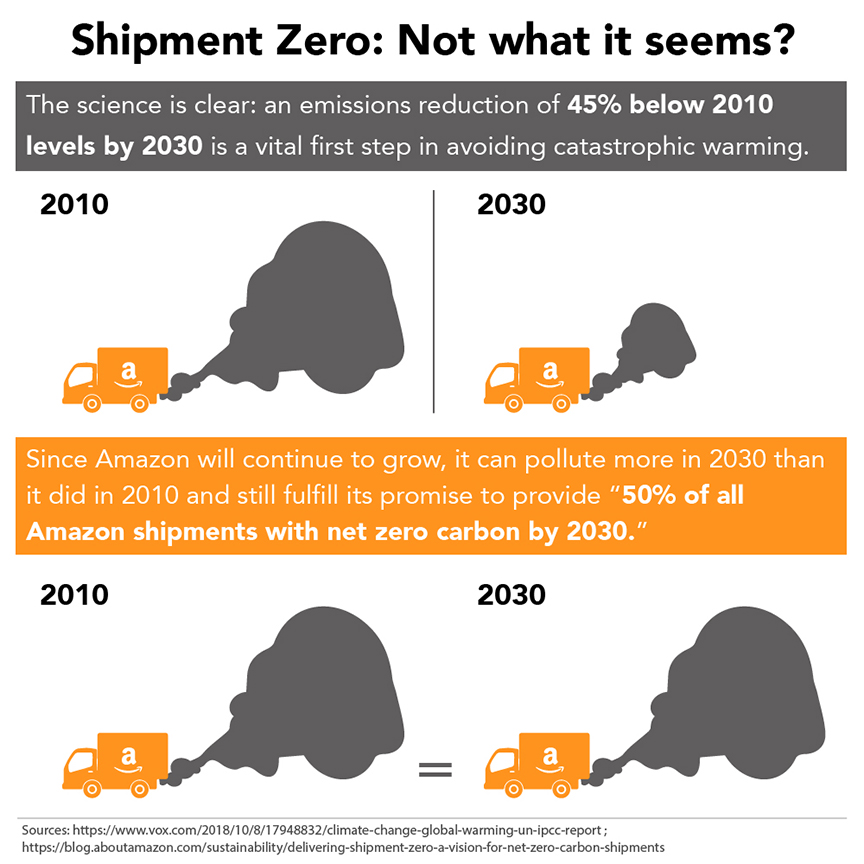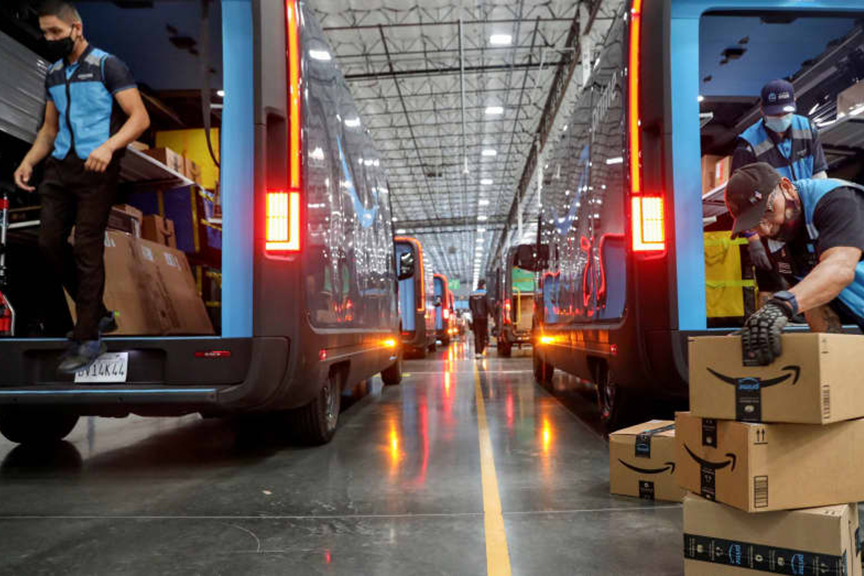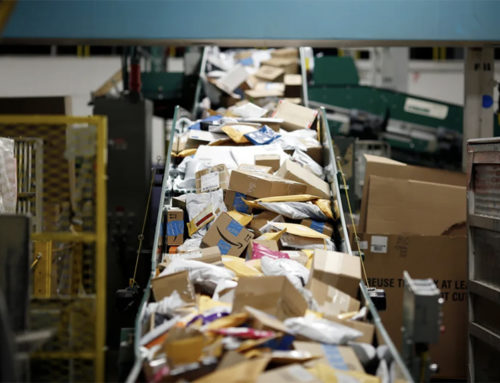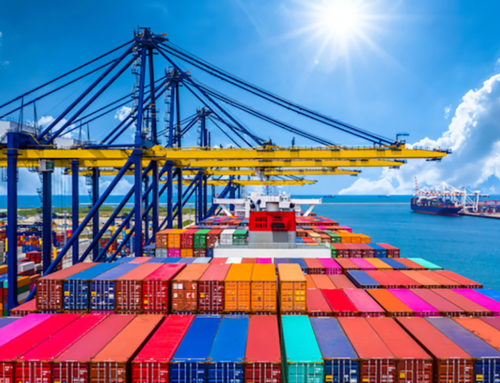The business landscape is evolving, with climate change taking center stage as a stress test for Amazon sellers and suppliers, as well as for major companies like Walmart and Apple. These companies are now grappling with mounting demands from consumers, investors, and regulators to reduce their carbon emissions. While these corporate giants are striving to shrink their carbon footprints, they are increasingly exerting pressure on their suppliers to follow suit, and those who fail to do so may pay a hefty price when it comes to climate responsibility, waste and environmental harm.
Amazon recently announced what they consider to be a significant step in this direction. Starting in 2024, the e-commerce giant will require suppliers to divulge their emissions data, establish emission reduction targets, and report on their progress. This initiative aligns Amazon with other industry leaders like Microsoft, Walmart, and Apple, all of whom are unequivocally stating that their suppliers must intensify their decarbonization efforts.
The mounting pressure on businesses to adopt eco-friendly practices emanates from various quarters, including consumers, investors, regulators, and governments. As corporate giants face this mounting demand, they, in turn, place increasing pressure on their suppliers. This domino effect permeates the supply chain, reaching even the smallest niche manufacturers and contractors.
Emissions are typically categorized into three scopes. Scope 1 emissions result directly from a company’s operations, while Scope 2 emissions stem from purchased energy sources, such as electricity. Scope 3 emissions, on the other hand, pertain to a company’s activities but are generated indirectly, including supplier emissions and emissions from customers using their products. According to an analysis by the non-profit CDP, Scope 3 emissions account for approximately 75% of all emissions across major industries.
Companies have greater control over their suppliers when it comes to reducing emissions in comparison to other areas of indirect emissions. For example, a consumer goods company can collaborate with eco-conscious suppliers, even though they cannot mandate how consumers use their products. Andrew Winston, an author specializing in sustainability-related business strategy, notes that the supply chain is where transparency and pressure will continue to rise because companies can directly influence it.
In response to this climate crisis, decarbonization mandates are growing more stringent. Salesforce, for instance, now demands that suppliers disclose Scope 1, 2, and 3 emissions, deliver products and services in a carbon-neutral manner, and complete an annual supply scorecard. AstraZeneca’s suppliers must annually report emissions data to the CDP and set science-based goals. Amazon, while not directly including suppliers in its Scope 3 accounting, is compelling suppliers to report emissions and set goals, which the company can then track.
This poses a paradox for third-party sellers and smaller suppliers who, despite being eco-conscious, often lack the resources required to meet tracking and reporting demands. A significant number of small and medium-sized business owners prioritize reducing emissions but cite a lack of skills and funds as challenges. The process of tracking emissions data can be daunting, with substantial upfront expenses, making it especially challenging for firms with tight cash flow.
Amid economic stress and concerns about recession, many small businesses have focused on employees and their financial bottom line rather than sustainability. However, the pressure on suppliers, both large and small, is mounting. The procurement arms of these businesses are delving deeper into their supply chains and asking increasingly pointed questions about sustainability.
Furthermore, many large companies are falling short of their emissions reduction goals, leading them to scrutinize their suppliers more closely. Recent reviews have revealed that a significant proportion of emissions come from suppliers, highlighting the need for further action. While companies are making carbon reduction commitments, there remains a gap between commitments and tangible results.
To assist their suppliers in meeting sustainability requirements, corporate giants are offering various forms of support, including funding, favorable terms, training, and access to clean technology. Amazon, for instance, has pledged to use its scale and innovation to help suppliers transition to renewable energy and sustainable materials. However, these efforts come with the expectation that partners align with decarbonization goals, or face potential consequences.
Ultimately, the onus is on suppliers to make independent decisions about how they approach these sustainability challenges. As companies aim to address Scope 3 emissions, they are more likely to collaborate with suppliers who can meet these demands. Those who don’t may find themselves in a challenging conversation about their future in the supply chain. The climate change stress test for Amazon sellers and suppliers has begun, and the choices they make now will determine their role in a greener, more sustainable future.

But what about Amazon itself and it’s claims to have control on it’s climate responsibility? As one of the world’s largest e-commerce and tech giants, it needs to be held accountable for the same pressures to reduce carbon emissions and adopt eco-friendly practices, including vast amounts of plastic waste generated and climate responsibility.
Amazon’s vast and complex supply chain includes third-party sellers and delivery partners, making it challenging to directly attribute issues like labor violations, environmental impact and climate responsibility to the company itself. Amazon often argues that it is not directly responsible for the actions of these independent entities. Amazon often contends that it lacks direct control over the actions of third-party sellers, delivery drivers, or other service providers. This argument is used to shift responsibility to these parties or claim that they should be held accountable for their own practices.
Where Amazon often uses contractual agreements with its partners, which can include provisions related to labor practices, environmental standards, or other concerns including climate responsibility. Amazon might argue that it has taken appropriate steps by setting expectations through contracts, and it is the responsibility of partners to comply, however the Amazon Marketplace allows independent sellers to list and sell their products. Amazon states that it merely provides a platform for these sellers and does not exert direct control over their operations or business practices, regardless of the paper trail.
Companies like Amazon make claim that they operate within the boundaries of the law and assert that its practices align with industry standards and that it operates in a manner consistent with its peers. This argument is used to suggest that the entire industry needs to evolve rather than singling out Amazon or forcing responsibility on Amazon’s part.
While Amazon may boast its investments in sustainability, renewable energy, and other initiatives aimed at mitigating environmental impact and climate responsibility, it’s easy to argue that they do little in the face of insurrection to make compliance with the same demands they force on others.
Amazon has mechanisms in place for dispute resolution and mediation where they pass responsibility back to grieving parties, forcing them to utilize these mechanisms rather than resorting to legal action or public pressure if they intend to keep selling through Amazon.
Where Amazon holds virtually unlimited financial resources, they can engage in public relations and advocacy efforts to both blind and shape public perception and influence the narrative. These efforts are used to showcase the company’s positive actions and deflect negative attention, as is such with Amazon pushing the responsibility of environmental protection on to everyone but themselves.






